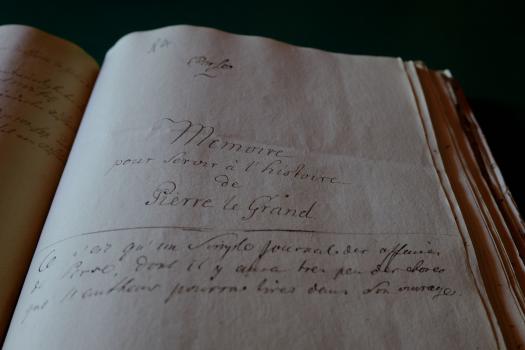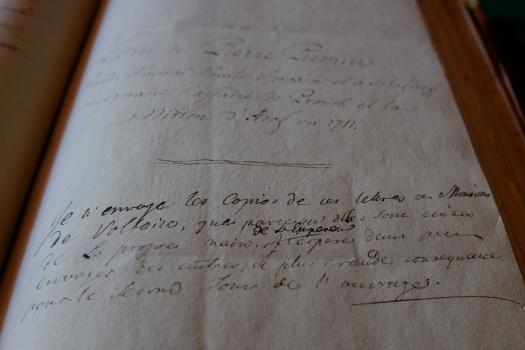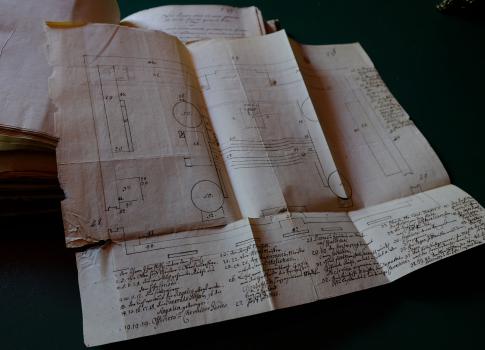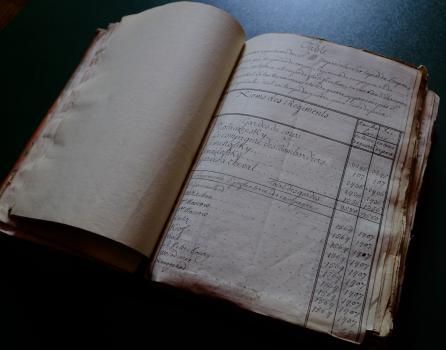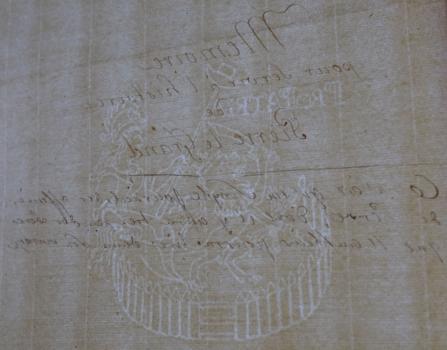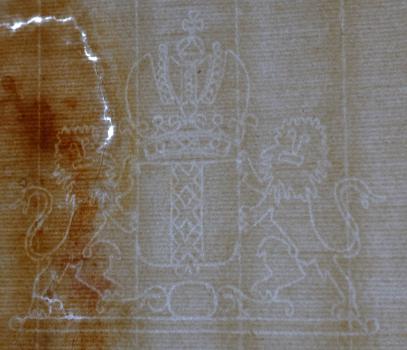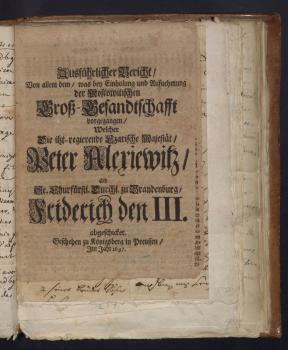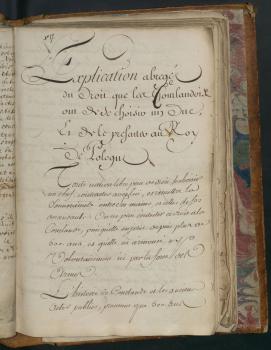Petrine Archive of Voltaire in the National Library of Russia
After Voltaire's death in 1778, the Russian Empress Catherine the Great who had exchanged letters with the French philosopher for many years acquired his library and papers. Among the manuscripts are five volumes containing 1800 leaves, 167 documents under a common shelfmark РНБ. БВ. 5–242. Most of the documents were sent to Voltaire from the St. Petersburg Academy of Science at the end of 1750s to work on The History of the Russian Empire under Peter the Great (Histoire de l’empire de Russie, t. 1–2, Genève, 1759–1763). The "History" was the most important foreign policy project launched by the crowned daughter of the Great Peter, Empress Elizabeth, during the Seven Years' War which divided Europe into two warring camps (Franco-Austrian-Russian alliance against Prussia and Great Britain).
These documents are translations into French of historical sources, statistical reports and essays prepared specifically for Voltaire. Here is collected information about the activities and personality of Peter the Great — chronological lists of his most important achievements, information about international negotiations of Peter and his ambassadors, letters from Peter and other persons. There are economic, geographical, statistical, historical, ethnographic materials; descriptions of cities, manufactories, rivers and canals, reports on state trade with different countries, descriptions of Siberian peoples.
A small part of the collection, namely Voltaire’s questions to academicians and their answers — was published in French1, but other documents are poorly studied.
St. Petersburg academicians — the native Russian Lomonosov, and the Russian German Miller — were unhappy that the history of Peter the Great was commissioned from a foreign writer. But the political moment required that the image of Russia be cleared of the cliches common in the West by an author recognized as authoritative in Europe. The mastermind Voltaire was ideally suited for this role, who, while working on The History of Charles XII (1732), already planned to create a portrait of Peter the Great — a monarch who created an empire while his rival destroyed his. Voltaire had already glorified two European monarchs who had died at the beginning of the 18th century - Louis XIV and Charles XII - and his authority was to provide an effective counterweight to the anti-Russian pamphlets inspired by Frederick II of Prussia.Voltaire had already glorified two European monarchs who dided at the beginning of the 18th century – Louis XIV and Charles XII – and his authority was to be an effective counterweight to the anti-Russian pamphlets inspired by Frederick II of Prussia.
By acquiring Voltaire's library, Catherine II not only showed Europe that she was leading her country along the path of Enlightenment, but also, as it turned out, received the most valuable materials on the history of political thought of the 18th century. Thanks to the fact that Catherine corresponded with Voltaire, this Archive was returned to Russia.
The materials that make up the Archive are interesting not in connection with Voltaire’s work on his book — which became the first historical work about Peter the Great written using documents — but as examples of the historical discourse that began to form in Russia. Although these materials are written in French, they were translated from Russian sources (not all of which have survived), and represent some of the first examples of Russian historiography. In addition to the documents themselves, of particular importance is the principle of their selection. Here the idea of Russia’s inclusion not in the narrative of legends, but in the narrative of historical science appears. Under the leadership of Ivan Shuvalov, Gerhard Miller and Johann Taubert worked on the preparation of materials, and Jacob Staehlin was involved in the work. Several essays belong to M. V. Lomonosov and were included in his collected works, but some other documents could have come from his pen or, in any case, were prepared under his direct “supervision”.
The Archive is important due to the time of its creation — the time when the statehood of the Russian Empire was formed, and it was created by the very people thanks to whom Russia joined the group of European powers.
